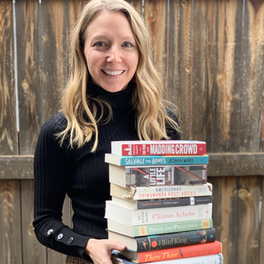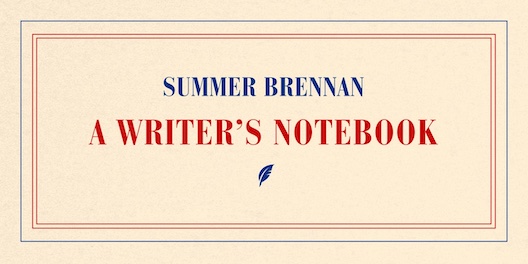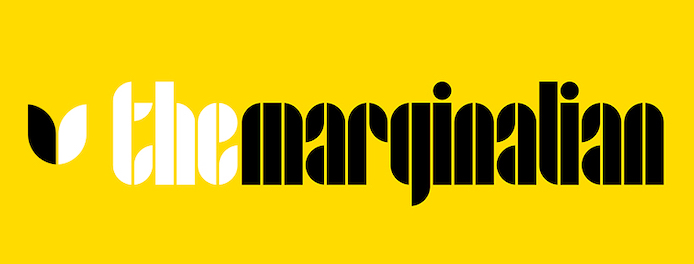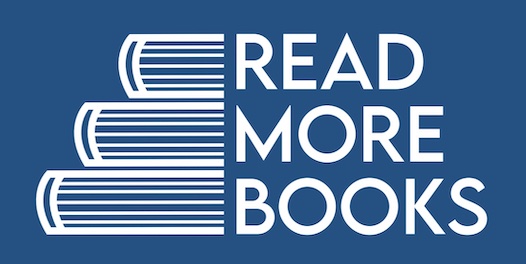I get more email in a day than I can keep up with, let alone respond to.
Most of us do. Collectively, we sent an estimated 319 billion emails each day in 2021. I’d love to know the breakdown of these messages. How many chains of rambling updates between old friends? How many are notes to confirm a long-awaited trip to visit family? My bet is these are in the minority, dwarfed by the vast number of promotions and automations. And I’m basing this on my own inbox.
That’s one of the reasons why I love subscribing to newsletters. It isn’t the same as a note from a friend, but it also doesn’t require more time than reading—no input, no decisions, and no feeling guilty for inevitably getting behind on responding. Just a prompt to take a few minutes and read about whatever the topic.
Here are 14 of my favorite literary newsletters, the ones that I love seeing in my inbox as an excuse to sit for a minute and think about books, writing, and reading.
Fiction Matters
I first found Sara Hildreth’s Fiction Matters newsletter through the former English teacher’s Instagram account, which has a similar literary focus, and it’s become one of my favorites. Each Sunday, Hildreth shares smart, quick reviews of books she’s read, comments on literary news, as well as a round-up of what she’s loving, making, listening, or watching. The content is great, but the tone is wonderful—kind, warm, and relaxed, the perfect way to jump back into your inbox at the end of the weekend.
Also, the title here isn’t misleading. The newsletter features mostly fiction, with occasional nonfiction reads and recommendations. Most titles are literary fiction, but Hildreth does read across genres, as well.
Cost: The Fiction Matters newsletter is free, but there is a Fiction Matters patreon community if you’re looking for more.
sweater weather
Electric Lit’s editor-at-large Brandon Taylor’s newsletter contains literary criticism that feels like a thought process, like his explaining an idea or unpacking a reaction and teasing it out to see how it works.
Besides being a pleasure to sit with, these newsletters motivate me to read more carefully, to consider the media I consume in conversation, to stop breaking my brain scrolling—though if you, like me, aren’t always successful at this, Taylor is an amazing Twitter follow.
In short: Must subscribe.
Cost: Free.

Electric Literature Newsletters
Electric Literature has three weekly newsletters, each arriving on a different day of the week. The Commuter, which goes out on Monday mornings, is a literary magazine with poetry, flash fiction, and graphic narratives. Each email includes one piece, as well as links to essays related to the broader topic, whether that’s aquatic drama or artistic influence. (Also, I can confirm, this email is a perfectly timed transition into the workweek even when you’re not commuting.)
Recommended Reading, which arrives on Wednesdays, features short fiction recommended by another author. It’s simple, but the personalized introduction to a story—explaining why it resonates, why the writer admires it—is lovely. I don’t know about you, but I tend to pay more attention, to engage more when someone recommends a piece to me.
Finally, the Friday round-up hits inboxes at the end of each workweek. This newsletter contains the best of Electric Literature’s essays, reading lists, and interviews, so you don’t have to worry about missing anything.
Life With Kat
Life With Kat is another newsletter that I found through Instagram. Kat Scrivener’s Instagram account is top-notch bookstagram—snaps stacked shelves, cozy mugs, a cute dog, and new books all the time. Scrivener’s commentary on books is thoughtful and engaging, and as a person living with cystic fibrosis, her perspective on disability representation in both fiction and nonfiction reads is important.
For her Life With Kat, Scrivener has a few monthly series: reading roundups, spotlights on new releases, and reflections on backlist reading. In these emails, Scrivener shares likes, dislikes, hype, and misses.
Cost: The monthly new release roundups are free, but the rest of the regular newsletters, featuring deep dives into recent reads, are for paid subscribers only, $5/month or $50 annually.
Memoir Mondays
This is—surprise, surprise—a weekly newsletter. Every Monday, the email includes a curated list of personal essays from Narratively, The Rumpus, Catapult, Granta, Guernica, Oldster Magazine, Literary Hub, as well as other publications.
Memoir Mondays was founded by Lilly Dancyger, and it’s currently run by Sari Botton. In addition to the newsletter, Memoir Mondays hosts a quarterly reading series in New York City. Not in your inbox, but a nice IRL option.
Cost: The newsletter is free, but the original Memoir Monday essay publications are for paid Substack subscribers only, $5/month or $50 annually.

Buzzfeed Books
The Buzzfeed Books newsletter sends out two emails each week. The Tuesday emails round up the best new books out each week. The list is usually broken up by genre—including nonfiction, romance, sci-fi, and more—with descriptions from members of the Buzzfeed team or Buzzfeed Books contributors.
On Sundays, the Buzzfeed Books newsletter highlights reading lists from the week, like must-reads by AAPI author and audio fiction podcasts for every kind of reader.
Cost: Free.
Lit Hub Daily
Lit Hub Daily features links to essays across the Lit Hub website, including author interviews, podcast episodes, reading lists, cultural criticism, and more. Plus, the email includes links to external literary content, so it’s an excellent one-stop-shop for literary news of the day if you’re trying to stay off Twitter.
Cost: Free.

Dear Reader
Dear Reader is run by Mumbai-based author and journalist Deepanjana Pal. Each month (or so), Pal shares thoughtful, essay-like reflections on the book she’s been reading over the last few weeks.
One of my favorite things about Dear Reader is that these reflections include not only content and criticism, but also the process of reading these books. In the most recent, for instance, Pal describes her expectations for The Mere Wife by Maria Dahvana Headley based on the title, and her surprise reading the first few lines.
Cost: Free.
bitches gotta eat!
Writer Samantha Irby’s bitches gotta eat! contains recaps and reactions to articles and essays, shows, movies, and (of course) books. And because it’s Samantha Irby, the writing is energetic and hilarious.
Cost: Free for occasional public posts, and access to all content is $5 per month or $50 annually.
A Writer’s Notebook
In this newsletter, author Summer Brennan shares stories from her work-in-progress research or what she’s been reading, occasionally commenting on literary news, and often writing about living in Paris (“Cough Like a French Girl” is an interesting read, and an unbeatable title). The newsletter includes Essay Camp, writing prompts and encouragement in a community “write-along.”
The schedule for this A Writer’s Notebook isn’t set, but Brennan sends it out at least twice each week.
Cost: Free for occasional posts, but access to all the newsletter content is $6 per month or $60 annually.
The Marginalian
Formerly Brain Pickings, The Marginalian is Maria Popova’s newsletter that catalogs, as Popova explains, “a record of my ongoing becoming as a person—intellectually, creatively, spiritually, poetically—drawn from my extended marginalia on the search for meaning across literature, science, art, philosophy, and the various other tendrils of human thought and feeling.”
Heavy for a newsletter, sure. But Popova’s essays about classic literature, theory, art, and science are sharp and consuming, which calls for deep reading, the best kind of break from the incessant din of emails and notifications.
The Marginalian has two subscription options, Sundays or mid-week.
Cost: Free, with the encouragement to donate.
Read More Books
Read More Books is mostly a weekly round up of what Jeremy Anderberg, a book reviewer, has been reading, with brief descriptions and reviews. But the newsletter also includes reading lists for various topics, including presidential biographies for each of our nation’s leaders and reads to better understand Elon Musk’s Twitter takeover.
If that wasn’t enough, Read More Books also features author interviews a few times a month.
Cost: Free weekly Friday newsletter, and $5 per month or $52 per year for bi-weekly book review emails, personalized recommendations, and access to the Read More Books slack.
The Austen Connection
The Austen Connection is about critical writing about books, literary zeitgeist, application of theory to general media, and, of course, a touchstone of Austen classics. The newsletter that considers connections between Austen’s body of work and modern-day media, including everything from reality romance TV to Michelle Obama’s memoir.
The Austen Connection goes out a few times each month, and the archive has a backlog of the essay-like email. One of my favorites explores the sexual tension in Austen’s writing, particularly Pride and Prejudice, and Sally Rooney’s three novels.
Cost: Free for posts, and $5 per month or $50 per year for early access to podcast episodes and subscriber-only posts.
Reading Habits
I’ll start with a disclaimer here: Arianna Rebolini’s newsletter Reading Habits is currently paused. But if you haven’t subscribed, I’d recommend making sure you’re on the list when she starts sending it out again.
Previously, Rebolini was an editor at BuzzFeed Books. Her newsletter features brief reflections on current reads, including backlist and new releases, with smart observations and frank assessments. Plus, it contains links to book round ups, author events, essays, and more.
Cost: Free and currently not accepting paid subscriptions.











